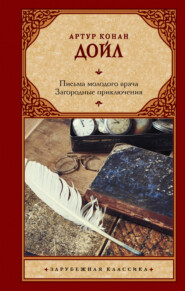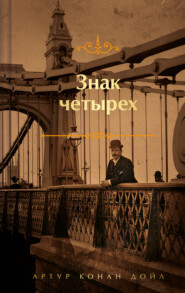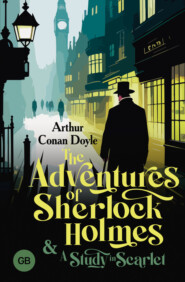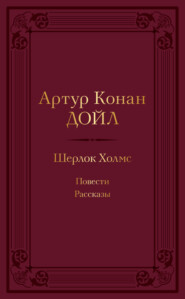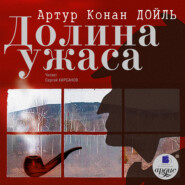По всем вопросам обращайтесь на: info@litportal.ru
(©) 2003-2024.
✖
Micah Clarke
Настройки чтения
Размер шрифта
Высота строк
Поля
‘Yes,’ said I shortly, ‘he hath had a bath.’
‘I am going to his Grace on the business of a horse,’ quoth my companion. ‘His officers have pressed my piebald four-year-old, and taken it without a “With your leave,” or “By your leave,” for the use of the King. I would have them know that there is something higher than the Duke, or even than the King. There is the English law, which will preserve a man’s goods and his chattels. I would do aught in reason for King James’s service, but my piebald four-year-old is too much.’
‘I fear that the needs of the public service will override your objection,’ said I.
‘Why it is enough to make a man a Whig,’ he cried. ‘Even the Roundheads always paid their vair penny for every pennyworth they had, though they wanted a vair pennyworth for each penny. I have heard my father say that trade was never so brisk as in ‘forty-six, when they were down this way. Old Noll had a noose of hemp ready for horse-stealers, were they for King or for Parliament. But here comes his Grace’s carriage, if I mistake not.’
As he spoke a great heavy yellow coach, drawn by six cream-coloured Flemish mares, dashed down the road, and came swiftly towards us. Two mounted lackeys galloped in front, and two others all in light blue and silver liveries rode on either side.
‘His Grace is not within, else there had been an escort behind,’ said the farmer, as we reined our horses aside to let the carriage pass. As they swept by he shouted out a question as to whether the Duke was at Badminton, and received a nod from the stately bewigged coachman in reply.
‘We are in luck to catch him,’ said Farmer Brown. ‘He’s as hard to find these days as a crake in a wheatfield. We should be there in an hour or less. I must thank you that I did not take a fruitless journey into Bristol. What did you say your errand was?’
I was again compelled to assure him that the matter was not one of which I could speak with a stranger, on which he appeared to be huffed, and rode for some miles without opening his mouth. Groves of trees lined the road on either side, and the sweet smell of pines was in our nostrils. Far away the musical pealing of a bell rose and fell on the hot, close summer air. The shelter of the branches was pleasant, for the sun was very strong, blazing down out of a cloudless heaven, and raising a haze from the fields and valleys.
‘’Tis the bell from Chipping Sodbury,’ said my companion at last, wiping his ruddy face. ‘That’s Sodbury Church yonder over the brow of the hill, and here on the right is the entrance of Badminton Park.’
High iron gates, with the leopard and griffin, which are the supporters of the Beaufort arms, fixed on the pillars which flanked them, opened into a beautiful domain of lawn and grass land with clumps of trees scattered over it, and broad sheets of water, thick with wild fowl. At every turn as we rode up the winding avenue some new beauty caught our eyes, all of which were pointed out and expounded by Farmer Brown, who seemed to take as much pride in the place as though it belonged to him. Here it was a rockery where a thousand bright-coloured stones shone out through the ferns and creepers which had been trained over them. There it was a pretty prattling brook, the channel of which had been turned so as to make it come foaming down over a steep ledge of rocks. Or perhaps it was some statue of nymph or sylvan god, or some artfully built arbour overgrown with roses or honeysuckle. I have never seen grounds so tastefully laid out, and it was done, as all good work in art must be done, by following Nature so closely that it only differed from her handiwork in its profusion in so narrow a compass. A few years later our healthy English taste was spoiled by the pedant gardening of the Dutch with their straight flat ponds, and their trees all clipped and in a line like vegetable grenadiers. In truth, I think that the Prince of Orange and Sir William Temple had much to answer for in working this change, but things have now come round again, I understand, and we have ceased to be wiser than Nature in our pleasure-grounds.
As we drew near the house we came on a large extent of level sward on which a troop of horse were exercising, who were raised, as my companion informed me, entirely from the Duke’s own personal attendants. Passing them we rode through a grove of rare trees and came out on a broad space of gravel which lay in front of the house. The building itself was of great extent, built after the new Italian fashion, rather for comfort than for defence; but on one wing there remained, as my companion pointed out, a portion of the old keep and battlements of the feudal castle of the Botelers, looking as out of place as a farthingale of Queen Elizabeth joined to a court dress fresh from Paris. The main doorway was led up to by lines of columns and a broad flight of marble steps, on which stood a group of footmen and grooms, who took our horses when we dismounted. A grey-haired steward or major-domo inquired our business, and on learning that we wished to see the Duke in person, he told us that his Grace would give audience to strangers in the afternoon at half after three by the clock. In the meantime he said that the guests’ dinner had just been laid in the hall, and it was his master’s wish that none who came to Badminton should depart hungry. My companion and I were but too glad to accept the steward’s invitation, so having visited the bath-room and attended to the needs of the toilet, we followed a footman, who ushered us into a great room where the company had already assembled.
The guests may have numbered fifty or sixty, old and young, gentle and simple, of the most varied types and appearance. I observed that many of them cast haughty and inquiring glances round them, in the pauses between the dishes, as though each marvelled how he came to be a member of so motley a crew. Their only common feature appeared to be the devotion which they showed to the platter and the wine flagon. There was little talking, for there were few who knew their neighbours. Some were soldiers who had come to offer their swords and their services to the King’s lieutenant; others were merchants from Bristol, with some proposal or suggestion anent the safety of their property. There were two or three officials of the city, who had come out to receive instructions as to its defence, while here and there I marked the child of Israel, who had found his way there in the hope that in times of trouble he might find high interest and noble borrowers. Horse-dealers, saddlers, armourers, surgeons, and clergymen completed the company, who were waited upon by a staff of powdered and liveried servants, who brought and removed the dishes with the silence and deftness of long training.
The room was a contrast to the bare plainness of Sir Stephen Timewell’s dining-hall at Taunton, for it was richly panelled and highly decorated all round. The floor was formed of black and white marble, set in squares, and the walls were of polished oak, and bore a long line of paintings of the Somerset family, from John of Gaunt downwards. The ceiling, too, was tastefully painted with flowers and nymphs, so that a man’s neck was stiff ere he had done admiring it. At the further end of the hall yawned a great fireplace of white marble, with the lions and lilies of the Somerset arms carved in oak above it, and a long gilt scroll bearing the family motto, “Mutare vel timere sperno.” The massive tables at which we sat were loaded with silver chargers and candelabra, and bright with the rich plate for which Badminton was famous. I could not but think that, if Saxon could clap eyes upon it, he would not be long in urging that the war be carried on in this direction.
After dinner we were all shown into a small ante-chamber, set round with velvet settees, where we were to wait till the Duke was ready to see us. In the centre of this room there stood several cases, glass-topped and lined with silk, wherein were little steel and iron rods, with brass tubes and divers other things, very bright and ingenious, though I could not devise for what end they had been put together. A gentleman-in-waiting came round with paper and ink-horn, making notes of our names and of our business. Him I asked whether it might not be possible for me to have an entirely private audience.
‘His Grace never sees in private,’ he replied. ‘He has ever his chosen councillors and officers in attendance.’
‘But the business is one which is only fit for his own ear,’ I urged.
‘His Grace holds that there is no business fit only for his own ear,’ said the gentleman. ‘You must arrange matters as best you can when you are shown in to him. I will promise, however, that your request be carried to him, though I warn you that it cannot be granted.’
I thanked him for his good offices, and turned away with the farmer to look at the strange little engines within the cases.
‘What is it?’ I asked. ‘I have never seen aught that was like it.’
‘It is the work of the mad Marquis of Worcester,’ quoth he. ‘He was the Duke’s grandfather. He was ever making and devising such toys, but they were never of any service to himself or to others. Now, look ye here! This wi’ the wheels were called the water-engine, and it was his crazy thought that, by heating the water in that ere kettle, ye might make the wheels go round, and thereby travel along iron bars quicker nor a horse could run. ‘Oons! I’d match my old brown mare against all such contrivances to the end o’ time. But to our places, for the Duke is coming.’
We had scarce taken our seats with the other suitors, when the folding-doors were flung open, and a stout, thick, short man of fifty, or thereabouts, came bustling into the room, and strode down it between two lines of bowing clients. He had large projecting blue eyes, with great pouches of skin beneath them, and a yellow, sallow visage. At his heels walked a dozen officers and men of rank, with flowing wigs and clanking swords. They had hardly passed through the opposite door into the Duke’s own room, when the gentleman with the list called out a name, and the guests began one after the other to file into the great man’s presence.
‘Methinks his Grace is in no very gentle temper,’ quoth Farmer Brown. ‘Did you not mark how he gnawed his nether lip as he passed?’
‘He seemed a quiet gentleman enough,’ I answered. ‘It would try Job himself to see all these folk of an afternoon.’
‘Hark at that!’ he whispered, raising his finger. As he spoke the sound of the Duke’s voice in a storm of wrath was heard from the inner chamber, and a little sharp-faced man came out and flew through the ante-chamber as though fright had turned his head.
‘He is an armourer of Bristol,’ whispered one of my neighbours. ‘It is likely that the Duke cannot come to terms with him over a contract.’
‘Nay,’ said another. ‘He supplied Sir Marmaduke Hyson’s troop with sabres, and it is said that the blades will bend as though they were lead. Once used they can never be fitted back into the scabbard again.’
‘The tall man who goes in now is an inventor,’ quoth the first. ‘He hath the secret of some very grievous fire, such as hath been used by the Greeks against the Turks in the Levant, which he desires to sell for the better fortifying of Bristol.’
The Greek fire seemed to be in no great request with the Duke, for the inventor came out presently with his face as red as though it had been touched by his own compound. The next upon the list was my honest friend the farmer. The angry tones which greeted him promised badly for the fate of the four-year-old, but a lull ensued, and the farmer came out and resumed his seat, rubbing his great red hands with satisfaction.
‘Ecod!’ he whispered. ‘He was plaguy hot at first, but he soon came round, and he hath promised that if I pay for the hire of a dragooner as long as the war shall last I shall have back the piebald.’
I had been sitting all this time wondering how in the world I was to conduct my business amid the swarm of suppliants and the crowd of officers who were attending the Duke. Had there been any likelihood of my gaining audience with him in any other way I should gladly have adopted it, but all my endeavours to that end had been useless. Unless I took this occasion I might never come face to face with him at all. But how could he give due thought or discussion to such a matter before others? What chance was there of his weighing it as it should be weighed? Even if his feelings inclined him that way, he dared not show any sign of wavering when so many eyes were upon him. I was tempted to feign some other reason for my coming, and trust to fortune to give me some more favourable chance for handing him my papers. But then that chance might never arrive, and time was pressing. It was said that he would return to Bristol next morning. On the whole, it seemed best that I should make the fittest use I could of my present position in the hope that the Duke’s own discretion and self-command might, when he saw the address upon my despatches, lead to a more private interview.
I had just come to this resolution when my name was read out, on which I rose and advanced into the inner chamber. It was a small but lofty room, hung in blue silk with a broad gold cornice. In the centre was a square table littered over with piles of papers, and behind this sat his Grace with full-bottomed wig rolling down to his shoulders, very stately and imposing. He had the same subtle air of the court which I had observed both in Monmouth and in Sir Gervas, which, with his high bold features and large piercing eyes, marked him as a leader of men. His private scrivener sat beside him, taking notes of his directions, while the others stood behind in a half circle, or took snuff together in the deep recess of the window.
‘Make a note of Smithson’s order,’ he said, as I entered. ‘A hundred pots and as many fronts and backs to be ready by Tuesday; also six score snaphances for the musqueteers, and two hundred extra spades for the workers. Mark that the order be declared null and void unless fulfilled within the time appointed.’
‘It is so marked, your Grace.’
‘Captain Micah Clarke,’ said the Duke, reading from the list in front of him. ‘What is your wish, Captain?’
‘One which it would be better if I could deliver privately to your Grace,’ I answered.
‘Ah, you are he who desired private audience? Well, Captain, these are my council and they are as myself. So we may look upon ourselves as alone. What I may hear they may hear. Zounds, man, never stammer and boggle, but out with it!’
My request had roused the interest of the company, and those who were in the window came over to the table. Nothing could have been worse for the success of my mission, and yet there was no help for it but to deliver my despatches. I can say with a clear conscience, without any vainglory, that I had no fears for myself. The doing of my duty was the one thought in my mind. And here I may say once for all, my dear children, that I am speaking of myself all through this statement with the same freedom as though it were another man. In very truth the strong active lad of one-and-twenty was another man from the grey-headed old fellow who sits in the chimney corner and can do naught better than tell old tales to the youngsters. Shallow water gives a great splash, and so a braggart has ever been contemptible in my eyes. I trust, therefore, that ye will never think that your grandad is singing his own praises, or setting himself up as better than his neighbours. I do but lay the facts, as far as I can recall them, before ye with all freedom and with all truth.
My short delay and hesitation had sent a hot flush of anger into the Duke’s face, so I drew the packet of papers from my inner pocket and handed them to him with a respectful bow. As his eyes fell upon the superscription, he gave a sudden start of surprise and agitation, making a motion as though to hide them in his bosom. If this were his impulse he overcame it, and sat lost in thought for a minute or more with the papers in his hand. Then with a quick toss of the head, like a man who hath formed his resolution, he broke the seals and cast his eyes over the contents, which he then threw down upon the table with a bitter laugh.
‘What think ye, gentlemen!’ he cried, looking round with scornful eyes; ‘what think ye this private message hath proved to be? It is a letter from the traitor Monmouth, calling upon me to resign the allegiance of my natural sovereign and to draw my sword in his behalf! If I do this I am to have his gracious favour and protection. If not, I incur sequestration, banishment, and ruin. He thinks Beaufort’s loyalty is to be bought like a packman’s ware, or bullied out of him by ruffling words. The descendant of John of Gaunt is to render fealty to the brat of a wandering playwoman!’
Several of the company sprang to their feet, and a general buzz of surprise and anger greeted the Duke’s words. He sat with bent brows, beating his foot against the ground, and turning over the papers upon the table.
‘What hath raised his hopes to such mad heights?’ he cried. ‘How doth he presume to send such a missive to one of my quality? Is it because he hath seen the backs of a parcel of rascally militiamen, and because he hath drawn a few hundred chawbacons from the plough’s tail to his standard, that he ventures to hold such language to the President of Wales? But ye will be my witnesses as to the spirit in which I received it?’
‘We can preserve your Grace from all danger of slander on that point,’ said an elderly officer, while a murmur of assent from the others greeted the remark.
‘And you!’ cried Beaufort, raising his voice and turning his flashing eyes upon me; ‘who are you that dare to bring such a message to Badminton? You had surely taken leave of your senses ere you did set out upon such an errand!’
‘I am in the hands of God here as elsewhere,’ I answered, with some flash of my father’s fatalism. ‘I have done what I promised to do, and the rest is no concern of mine.’
‘You shall find it a very close concern of thine,’ he shouted, springing from his chair and pacing up and down the room; ‘so close as to put an end to all thy other concerns in this life. Call in the halberdiers from the outer hall! Now, fellow, what have you to say for yourself?’
‘There is naught to be said,’ I answered.
‘But something to be done,’ he retorted in a fury. ‘Seize this man and secure his hands!’
Four halberdiers who had answered the summons closed in upon me and laid hands on me. Resistance would have been folly, for I had no wish to harm the men in the doing of their duty. I had come to take my chance, and if that chance should prove to be death, as seemed likely enough at present, it must be met as a thing foreseen. I thought of those old-time lines which Master Chillingfoot, of Petersfield, had ever held up to our admiration —
Non civium ardor prava jubentium
Non vultus instantis tyranni
Mente quatit solida.






